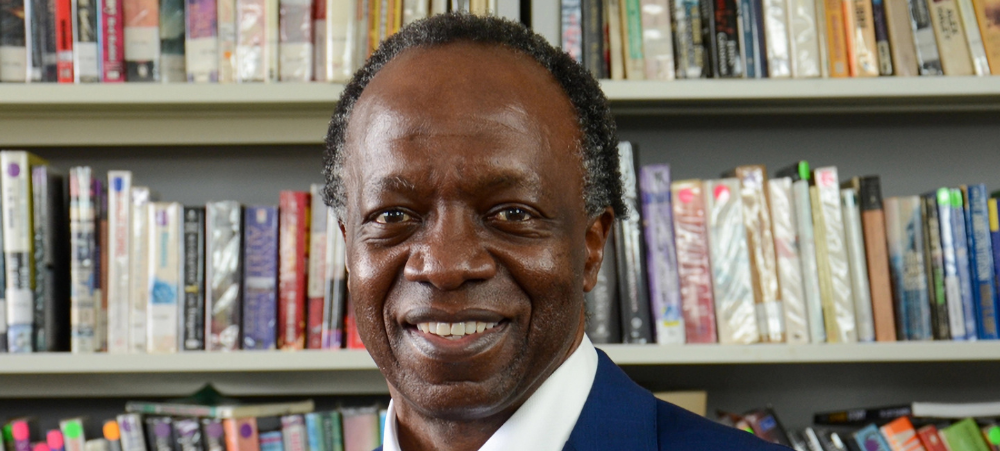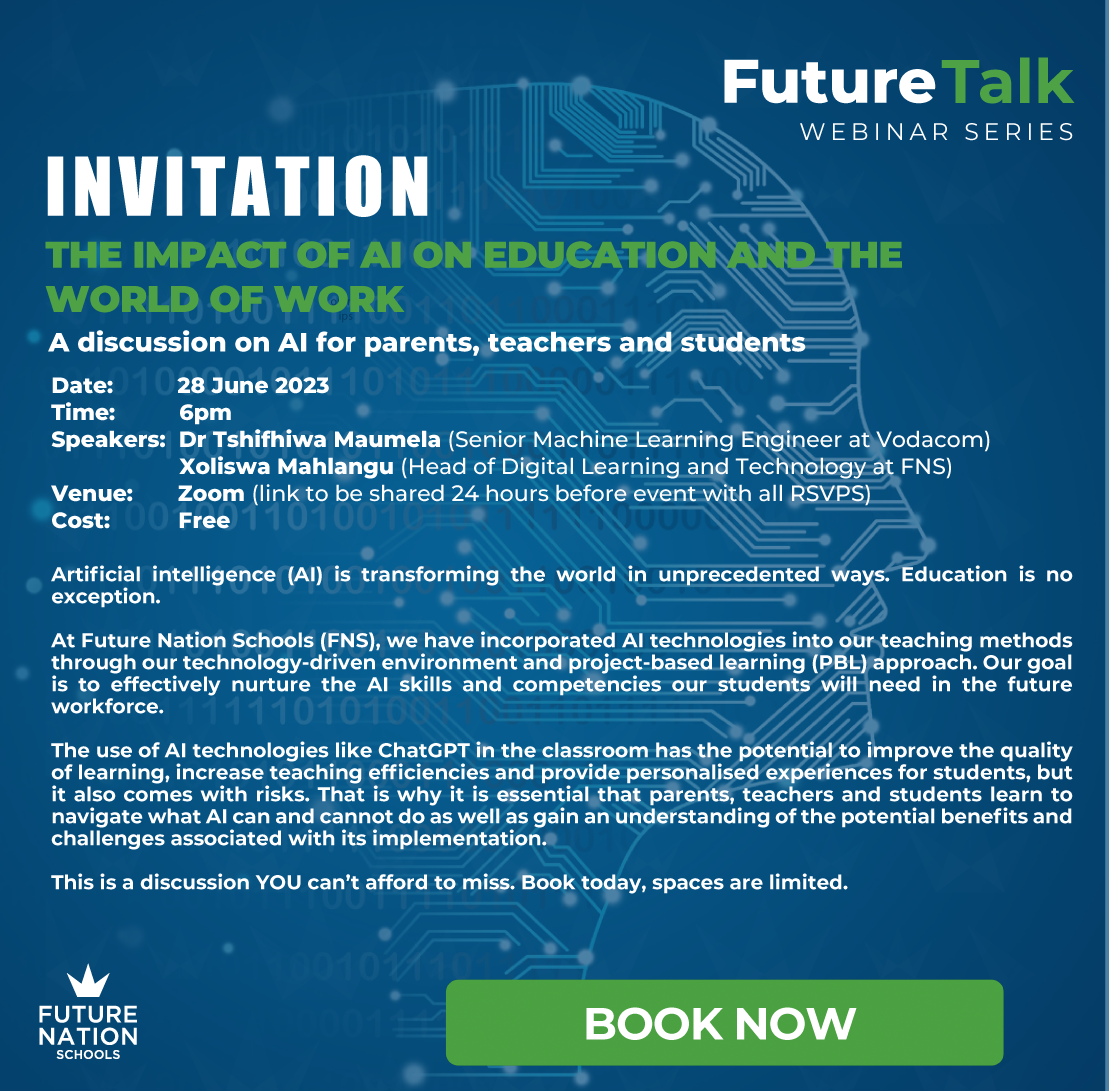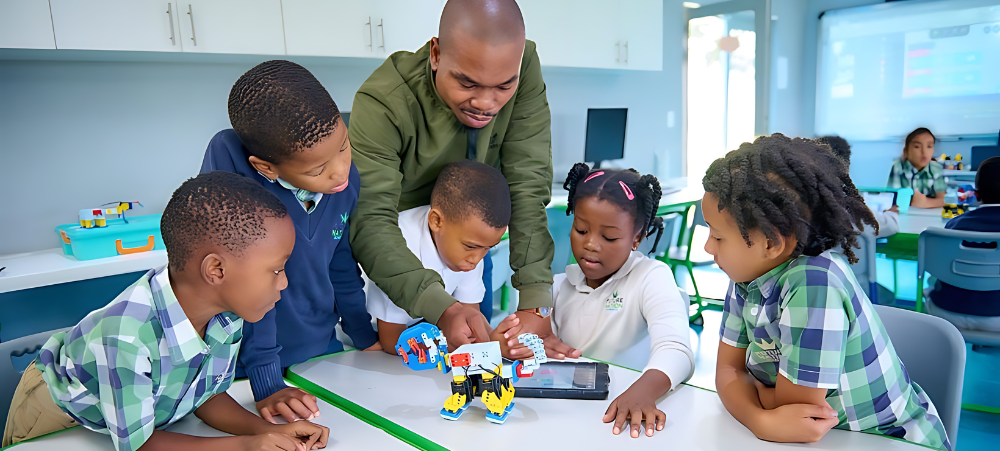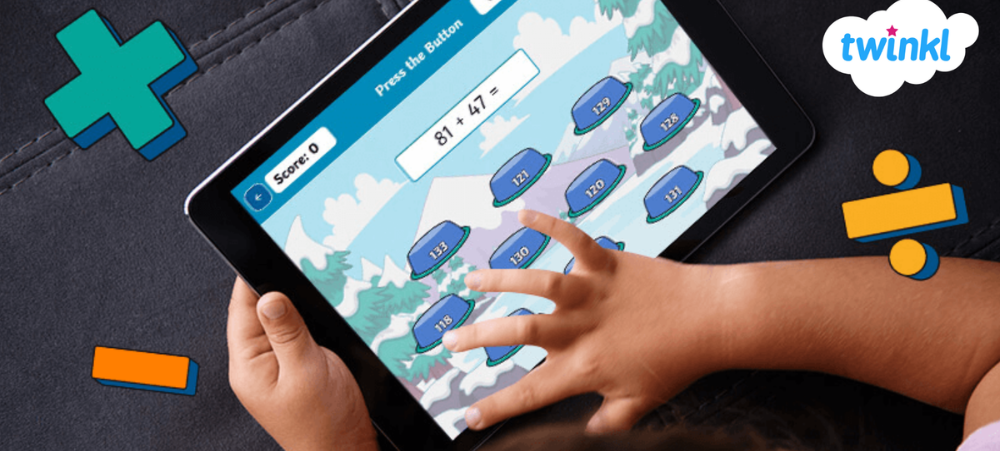Artificial intelligence (AI) is transforming industry in unprecedented knots. Education is no exception. And while the use of AI technologies like ChatGPT has the potential to improve the quality of learning, increase teaching efficiencies and provide personalised experiences for students in the classroom, it is vital that parents and teachers learn to navigate what AI can and cannot do, as well as the potential benefits and challenges associated with its implementation, says Sizwe Nxasana, Founder and CEO of Future Nation Schools (FNS).
“With the rise of AI, we’re finding that students are increasingly utilising these tools to streamline and enhance their learning experience. From automating tasks to accessing personalised study resources and even writing essays and helping with homework, AI is empowering students to tackle schoolwork and homework with greater efficiency and effectiveness. As AI continues to evolve, students will have even greater opportunities to leverage its capabilities and that means parents and teachers need to stay ahead to ensure that learners are assimilating and demonstrating knowledge in the way that they should.”
From a teacher perspective, AI can solve many of the everyday pain points and challenges that they experience. Teachers can use AI to fast track tedious tasks such as lesson planning and classroom management, so that they can spend more time on skills that humans perform better in such as teaching creativity, critical thinking and problem-solving skills, as well as providing emotional support and building relationships with students.
For example, one of the areas where AI really excels is pattern matching, explains Xoliswa Mahlangu, Head of Digital Learning and Technology at FNS. “This is a great innovation for teachers as pattern matching can assist with tasks such as the marking of assessments as well as providing immediate and meaningful feedback to students.”
“AI can also be used for adaptive learning, where students receive guided instruction based on their current skill level. Test preparation, plagiarism detection and exam integrity checks are some of the other potential uses that teachers can benefit from when it comes to adding AI into their daily practices.”
However, like with all things, the use of AI in education must be guided by very specific objectives to ensure that its potential is harnessed effectively.
It is vital that teachers work to strike a balance between the legitimate use of AI tools in the classroom as well as helping their students achieve the desirable educational goals. With the very real risk that students may become over reliant on AI systems to provide answers without fully comprehending the underlying concepts, teachers must mitigate this by spending more time on tasks that foster critical thinking and problem-solving skills in the classroom. By encouraging more creativity and collaboration in the classroom, teachers are also able to enhance education beyond AI’s ability to ensure that students are truly learning.
Parents, similarly, need to get a grasp on the way their children use these technologies. Parents, for example, should be cautious of excessive reliance on AI technologies, as they may inadvertently hinder the development of important social skills, empathy and emotional intelligence in their children. Parents must also encourage a balanced approach where their children know how to leverage the power of AI tools, but do not rely on them as the sole source of learning.
Ultimately, what this translates to is that both teachers and parents need to come to adopt new teaching and learning pedagogies as the world of education shifts into the realm of AI.
One pedagogy leading the pack in this regard is project-based learning (PBL). “PBL offers a powerful counterbalance to AI’s challenges because it fosters essential skills and qualities that go beyond what AI can offer and empowers students with the skills they need to thrive in an AI-driven world,” explains Nxasana. “By emphasising critical thinking, collaboration, creativity, adaptability and ethical awareness, PBL offers a holistic approach that transcends the limitations of AI. Through PBL, teachers can ensure that students are both prepared to leverage AI as a tool and harness their uniquely human abilities to innovate, problem-solve and make meaningful contributions in an ever-evolving technological landscape.”
At 6pm on 28 June 2023, FNS will hold an online discussion on “The impact of AI on education and the world of work,” where Dr Joshua Tshifhiwa Maumela, Senior Machine Learning Engineer at Vodacom and FNS’s Xoliswa Mahlangu will equip parents, students and teachers for success. Register here for this complimentary FutureTalk webinar.
Revolution through relevant, futuristic, Africa-focused and technology-enabled education.
Future Nation Schools, which has campuses in Fleurhof and Lyndhurst, offers quality,
affordable, African-centred education for Pre-School, Primary and High School.
The curriculum comprises an enhanced National CAPS curriculum, delivered through Project BasedLearning, and an IEB examination in Grade 12.
- Nurturing Tomorrow’s Innovators: The Role of Parents and Teachers in Coding and Robotics Education - November 21, 2024
- Play and project-based learning: cultivating future leaders through innovative education - September 11, 2024
- Embracing the New Coding and Robotics Curriculum:A Guide for South African Teachers - July 31, 2024






